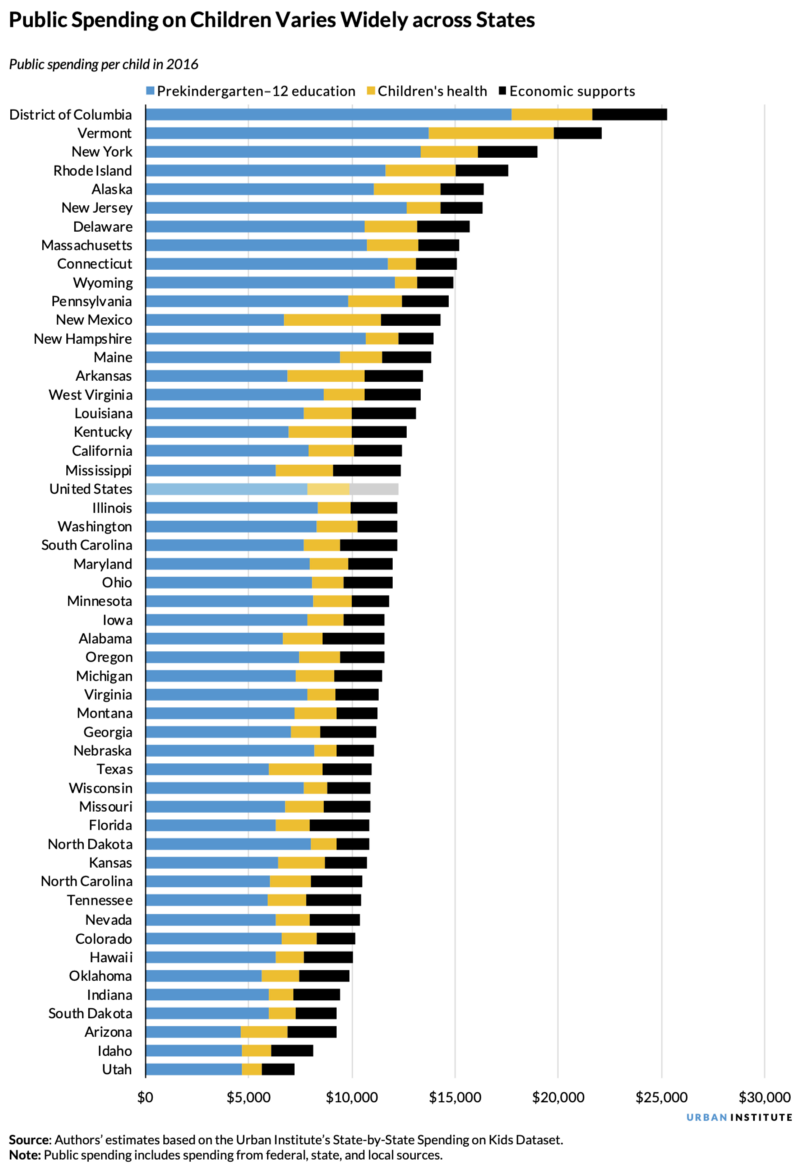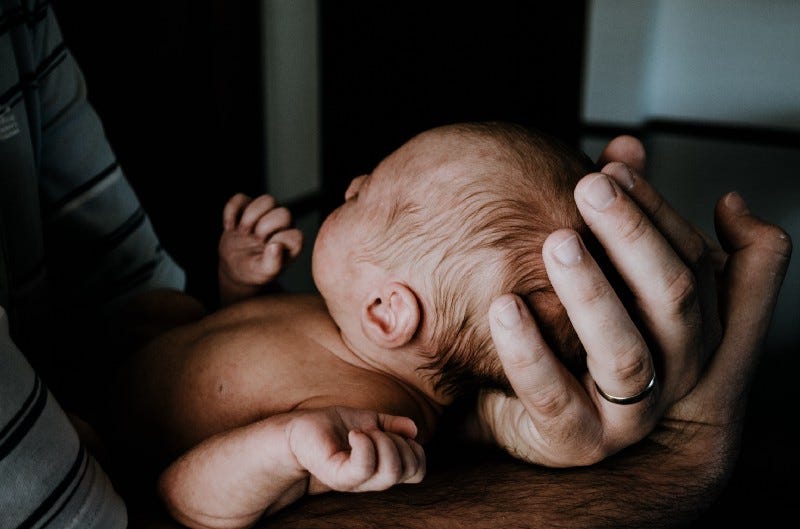Is the Church Ready for the End of Roe?
Many pro-life evangelicals are ecstatic to see Roe v. Wade overruled. But is the Church prepared for what must follow?

And just like that, the world changed.
Or at least, that’s how I felt when the news came down Friday that the Supreme Court had moved to overrule Roe vs. Wade and Casey vs. Planned Parenthood. It had the distinct feel of a “where were you when you heard about…” moment, like the way you felt in February when Will Smith got all slappy with Chris Rock and you’d only just been made aware that it happened. The self-awareness of knowing you are living through a historic moment is weirdly paralyzing when you think about it. It’s why we run to our respective Hot-Take Machine of choice to hear other people opine on how we’re supposed to feel about it all. There’s a kind of safety in watching your more opinionated friends and followed personalities deliver impassioned soliloquies and clever one-liners while you decide whose argument you want to align yourself with. I do this too, and I’m not exactly proud of it. Maybe it’s partly in defiance of that pervasive attitude that I’m writing this now.
Today, there are many who are dancing in the streets and on social media in response to Friday’s ruling. At the same time, many others are angry and gearing up for the next leg of the fight, some aggressively so. In light of both reactions, my hope in writing this is really to circumvent entirely the part of this discussion that’s currently getting all the attention (“who is right?”) and focus solely on the way forward (“what now?”), particularly as it pertains to the Church.
This is not a story about my opinions on the ruling and what I think should happen. This is a story about what comes next, and indeed what must come next. Whichever side you’ve taken, by now it is surely evident that this story is nearer to its opening act than its final curtain. And my fear is that the Church, in particular that branch of her that has fought long and hard for this very moment, is unprepared to handle this next part.
Supply and Demand
Not long after the original ruling leaked to the public back in May, Vox Media published an article detailing the many ways states who are traditionally pro-life are struggling to support impoverished children and families. In the article, the writer points out that by and large, the 22 states preparing to enact significant abortion bans as a result of the Supreme Court’s ruling “rank in the bottom half of states in the comprehensive support they provide to children and their families.” Barring an unforeseen drastic shift in the allocation of state funds, it makes sense to expect these spending patterns to remain consistent moving forward. As such, greater restrictions on abortions will necessarily mean more babies being born. The problem is that most of these states are already struggling to provide for the lives already born on multiple levels, whether that be economic support, education, or health care.

In this lies a key component of the argument levied against the pro-life movement: the idea that pro-lifers a simply “pro-birth” and aren’t the least concerned with the care for said life once it has exited the womb. This claim has been chided by pro-lifers as a refusal to concede the point that any life has intrinsic value to it, regardless of how you, I or anyone else may feel about it. All in all, both sides stand predictably entrenched in their ideologies, and Friday’s ruling appears to have simply confirmed what we already knew about each argument rather than introduce any kind of new paradigm.
I mention this at the beginning of this piece because it serves as a prime example of the pro-choice community’s teleological argument in favor of abortion. You and I may not agree with the premise, but that is somewhat beside the point here. As presented, the issue is as straightforward as simple supply and demand: moving forward, the “supply” of babies will undoubtedly increase, thus creating the “demand” for more support needed to help those lives succeed. The argument coming from the pro-choice side is that such an attitude from the states enacting abortion restrictions while also limiting spending per child essentially dooms the yet-to-be-born, along with their families, to a potentially insurmountable disadvantage.
As someone who considers himself pro-life, I have to be honest here: I resonate with their point. In many ways, I’ve seen up close and in person what happens to children who come into the world having been dealt what can only be described as an impossible hand.
Back Into the Void
As I write this, I cannot but think of the many patients I have served over the years who have come from impoverished families, or through the foster care system. I can remember starting out as a wide-eyed counselor, encountering children who so clearly required basic needs and a steady hand to guide them in order to set them up for success. The realization, however, that these children who performed so well in the few days they spent with me on my inpatient hospital unit would soon be sent back into the void from whence they came, back to a family who very clearly could not provide what the child needed, but also did not meet the qualifications needed to trigger the state’s involvement…well, that was a sobering day for me. Over time it explained why our recidivism rate was so high at the time: it was not uncommon for patients coming from such dysfunctional situations to tell us they felt more cared for on our unit than in their own homes. My coworkers and I would feel the need to be less fun on purpose at times, if only so our patients didn’t get too comfortable in our care and risk turning our unit into a readily available, maladaptive coping skill. Keep in mind, according to the chart referenced above, that I live in a state that is ostensibly knocking on the door of the Top 5 in annual state spending per child. New Jersey is spending almost $10,000 a year more than Utah spends per child on a state level. By all accounts, the kids I’m seeing should have the best chances at success compared to their peers in other parts of the country. But that is not what my eyes tell me when I go to work every day.
The likely pro-life rebuttal to this is that I am conflating issues here, that such hardships do not permit the termination of unborn life. Fair enough. But you cannot discuss a person’s “right to life” without conceding that life is inherently worth living, and it is the “living” part that I am concerned with here. Because ultimately, the state of the game for the yet-to-be-born is not exactly great as things currently stand, as the chart above can attest. But now I want to turn our attention to the people who must now bear the responsibility, beyond even that of the policy-makers in Washington, in coming alongside these children and their families: the Church.
The Signature of the Divine
The central question of this article is simply this: what is the nature of the Church’s responsibility as it pertains to the unborn?
To the pro-life evangelical, the sanctity of human life is intrinsically tied to the imago dei manifest in each living person. We argue for the right to life because, regardless of the beliefs and actions held by the expectant parents, that child has been created in the image of God and bears with him the signature of the divine imprinted onto his very essence, even in utero.
Since God is the Author of life, and the Church exists as His hands and feet in a world torn asunder by sin, it follows that we ought to advocate for, protect and defend that which God has designed for good. This logic can apply to other frequently-debated issues in some respects, but as it pertains to the unborn, surely we ought to celebrate life where previously there was the absence of life. Despite the divisiveness currently permeating our collective discourse, such a statement can in fact stand on its own, independent of further qualification. It is by no means an exhaustive or complete statement, but it is nonetheless a correct statement. On this point, the pro-life evangelical community gets it right. God does not ask me to qualify whether a life as worthy of existence or not, just as I do not ask my five year-old daughter to decide which continent we ought to live on. The preconditions for following Him require the willingness to accept His vision of “good” over and above my own, and that includes how we perceive the value of an individual human life.
So yes, on one level we can say it is right to celebrate the results of Friday’s ruling. But it is not so simple as that. It is one thing to celebrate the right to life of the unborn, but the objections of the other side cannot be tossed aside as they are not entirely without merit. In many ways, if we can take a brief hiatus from being immediately offended by an alternative opinion, we would see that their challenge is ultimately to demonstrate what we believe even more completely. But most of the time, the conversation doesn’t get that far before the insults start flying.
When considered from the perspective of recent history, part of this challenge stems from the sad truth that American Christianity has long been characterized by a lazy theology that believes some glad morning when this life is over, we’ll all fly away while God takes a flamethrower to the very naughty world we’ve left behind. Nothing could be further from the truth. We believe that when the Kingdom comes, as Paul’s Epistles, the book of Revelation and even the Lord’s Prayer clearly states, it comes here, to earth. We have been entrusted with the care of the Master’s estate, and how we spend our time in the service of the Master matters. This is especially true in light of Friday’s ruling.
James tells us that “religion that is pure and undefiled before God, the Father, is this: to visit orphans and widows in their affliction” (James 1:27). The Psalms sing of God’s steadfast devotion to the disadvantaged and the needy: “A father to the fatherless, a defender of widows, is God in his holy dwelling. God sets the lonely in families, he leads out the prisoners with singing” (Psalm 68:5–6a). All over the Scriptures, we can see a God who runs toward the lost and the oppressed, never away. That is what I mean when I say this piece is not about who is most right when it comes to dissecting the finer points of the Consitution’s verbiage on the right to an abortion. This is about the opportunity the Church has to demonstrate to the world that she really believes that which she lays claim to, and that belief has the saving power to terraform lives.
To be clear, I am not advocating for the tired “whole-life” argument that has been posited by some as the necessary final form of pro-life ideology. This critique, to borrow a phrase from C.S. Lewis, though seeming very sensitive and understanding on its face, has every available quality except that of being useful. It really serves no purpose other than to saddle the pro-life advocate with so many other adjacent problems that they have no choice but to abandon the argument entirely. That is not what I am getting at here. My concern is that it is extremely likely there will more children born into what can reasonably be expected to be less-than-ideal circumstances across our nation, and those who are pro-choice advocates fully expect that nothing substantive will be done about it. This is more than likely true from a political end. It doesn’t have to be true with regards to the Church.
No Disjunction
In a world where virtue signaling has become thoroughly dissociated from virtue practicing, the Church has fallen victim to one of the classic blunders: we’ve figured out how “people” ought to behave, but conveniently and consistently fail to count ourselves among the requisite masses. It’s as if at bottom we believe we do not really need to demonstrate the love of God made manifest in our hearts through the grace given to us by the blood of Jesus; we only need to know that “people” ought to act as such, and that is itself somehow enough to justify our faith. This is the precedent set by American Christians of past generations, and it is the reason why the nature of our witness matters so much in this present moment. We are ambassadors for Christ in a nation that thinks it has His people figured, and not in a good way. We’re fighting to meet the expectations of our station as followers of Jesus while simultaneously working to subvert them. This is no easy task.
I once heard it said that there is no disjunction between obedience and love. I like that. Jesus himself drew the same connection when he said “if you love me, keep my commandments” (John 14:15). Obedience flows freely when it is born of love, and true love is made complete through dutiful obedience. In other words, at the risk of stating the obvious, loving something always looks like something. It never births an absence. This is something the pro-life community, in particular the evangelical pro-life community, must contend with. We must be careful not to fall in love with the idea of being right, as if it can somehow be annexed off from doing right. To the one whom much has been given, much will be required. And right now, was is “required” is to show a nation asking itself all manner of questions just what the Church is all about.
Conclusion

Shortly after the ruling came down Friday, Christianity Today CEO and Editor-in-Chief Timothy Dalrymple acknowledged the church’s challenging road ahead and issued a simple exhortation: “The best way we can celebrate the children who will be born of Roe’s demise is to love the mothers who raise them.” I readily agree with this, and I hope my brothers and sisters in Christ do as well. The same values that point us to cherish every living thing as a gift from God Himself also point us to honoring the works of His hands without contradiction and without partiality. We must work tirelessly across the board to see the Kingdom come on earth, just as in heaven. That is what the Church is for. That is why we are not taken up to heaven at the moment of salvation. To quote the late Kobe Bryant, “job’s not finished.” There is yet work to be done. Certainly that can look different for anyone, but it must look like something for everyone. Our very witness is at stake when we choose not to act.
I’ll end with the question I myself would much prefer not to contend with:
As part of the family of God, are we prepared to interrupt and inconvenience our lifestyles, our time, even our family structures to meet the needs of those whom the Father loves, and has called us to do the same?
For just as it was in the time when these words were spoken, the harvest is plentiful, but the workers are too few.


